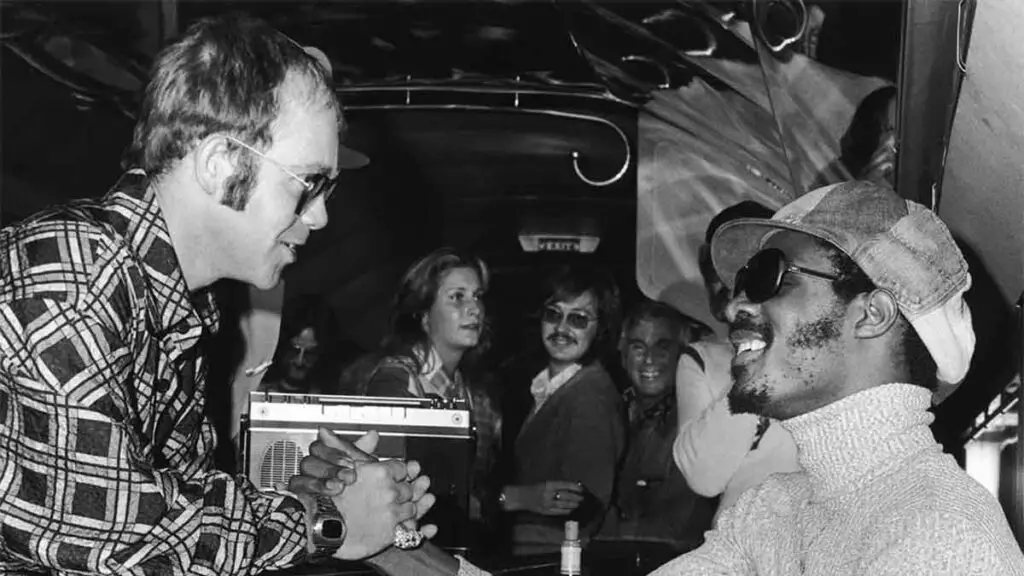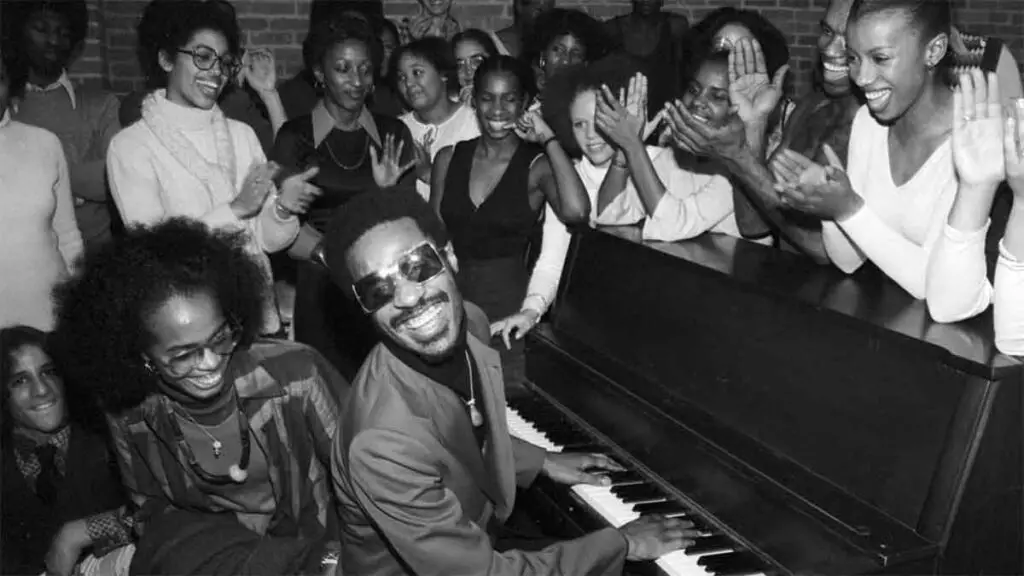Stevie Wonder’s career is one of the most remarkable transformations in music history. From his early days as a Motown prodigy, dubbed “Little Stevie Wonder,” to his groundbreaking albums of the 1970s, Wonder redefined the boundaries of soul, funk, and R&B.
His evolution from teen sensation to artistic visionary was marked by bold experimentation, socially conscious lyrics, and an unparalleled mastery of songwriting and production. As Quincy Jones once said, “Stevie Wonder is not only a national treasure but a worldwide phenomenon who changed music forever.”
Contents
The Motown Prodigy: Early Success
Born Stevland Hardaway Judkins in Saginaw, Michigan, in 1950, Wonder displayed musical talent from an early age. Blind since infancy due to retinopathy of prematurity, he developed a keen sense of sound and an extraordinary musical ear.
By the age of 11, he was discovered by Ronnie White of The Miracles and signed to Motown’s Tamla label. Renamed “Little Stevie Wonder,” he quickly impressed the industry with his virtuosity on the harmonica, drums, and piano.
Stevie Wonder burst onto the scene in 1963 as a 13-year-old with “Fingertips Pt. 2,” a live recording that topped the Billboard Hot 100. His youthful energy and harmonica prowess made him an instant star.
Under the guidance of Motown’s Berry Gordy, Wonder released a string of hits, including “Uptight (Everything’s Alright)” and “My Cherie Amour.” Despite this success, he yearned for creative control—something rare for Motown artists at the time.
Reflecting on this period, Wonder later said, “I loved what I was doing, but I knew there was more to music than just making hits. I wanted to create something that truly mattered.” That desire for artistic independence would shape the next phase of his career.

Breaking Free: Artistic Independence and Innovation
As the 1970s began, Wonder renegotiated his contract with Motown, securing full creative control—an unprecedented move. This newfound freedom led to the release of “Music of My Mind” (1972), the first album to showcase his experimental use of synthesizers, layered production, and introspective themes.
Producer and songwriter Lamont Dozier once commented, “Stevie wasn’t just making records—he was painting soundscapes. He made us all rethink what R&B could be.” This period marked the beginning of Wonder’s transformation from a hitmaker to an auteur.
‘Innervisions’: A Bold Social Statement
In 1973, Wonder released “Innervisions,” an album that tackled racial injustice, drug abuse, and political corruption. Songs like “Living for the City” provided a raw, unfiltered look at systemic racism in America. “Higher Ground” and “Don’t You Worry ’Bout a Thing” fused funk, jazz, and Latin influences, demonstrating Wonder’s genre-blending genius.
Reflecting on “Innervisions,” Wonder once said, “Music is a reflection of the times we live in. I wanted people to feel something, to think differently about the world around them.” Critics hailed the album as a masterpiece, and it won the Grammy for Album of the Year.
‘Songs in the Key of Life’: The Pinnacle of Genius
By 1976, Wonder had reached the height of his artistic powers. “Songs in the Key of Life” was a sprawling, ambitious double album that touched on love, spirituality, and social issues. Tracks like “Sir Duke” paid homage to jazz legends, while “As” and “Isn’t She Lovely” showcased his ability to write both deeply personal and universally resonant songs.
Musician Elton John called the album “the most complete musical statement anyone has ever made.” Quincy Jones added, “It’s the kind of record that only happens once in a lifetime.”

The Legacy of Stevie Wonder’s ’70s Evolution
Stevie Wonder’s groundbreaking work in the 1970s paved the way for countless artists in soul, pop, and hip-hop. His fusion of synthesizers with traditional R&B elements set the stage for modern electronic music. Songs like “Pastime Paradise” were later reimagined by artists like Coolio (“Gangsta’s Paradise”), proving the timelessness of Wonder’s influence.
As Wonder himself said, “Music, at its essence, is what gives us memories. The longer a song has existed in our lives, the more memories we have of it.” His work from the 1970s continues to inspire generations, cementing his status as one of the most visionary musicians of all time.
Stevie Wonder’s transformation in the 1970s was more than just a shift in sound—it was a revolution in artistry and social commentary. From Motown prodigy to independent genius, his fearless creativity reshaped popular music. His legacy remains as powerful today as it was five decades ago, reminding us that true artistry knows no bounds.




